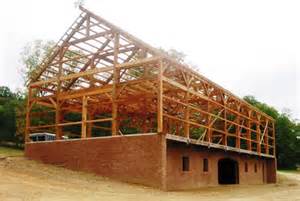By Larry Short
Given some of the painful woes of our current situation, many of us have learned afresh how to lament the many challenges we face.
Some are more serious than others. Many have family members or friends who are struggling to recover from COVID-19—and as we know, not all such struggles end well. Or perhaps they are struggling with the prospect or fear of a potentially fatal illness and not the reality.
Others have lost jobs or income streams. They may have children at home who must be shepherded through the new learning process, requiring great and unaccustomed sacrifice of time and trouble.
Others, like me, face smaller challenges: The weight of isolation from family and friends. The inconvenience of restrictions on the way we go out, shop, or worship. Or perhaps the loss of retirement investments we had really hoped would “be there” for us in our sunset years and the prospect of possibly having to continue working after we would otherwise have retired.
All of these things, and more, to which each of us are subjected in these days of pandemic and societal upheaval, are painful.
Timothy Dalrymple is the president of my favorite magazine, Christianity Today. They have been taking a consistently hard, honest, and thorough look at the challenges presented by the current cultural context to us as Christians and to the churches we invest our lives in.
In the September issue, he took an interesting look at our pain, what is causing it, and what God might be doing in the midst of it. In an editorial titled “When Healing Hurts,” he recalled the story of Jesus healing the paralytic by the Pool of Bethesda and the fascinating question with which our Lord initiates that interaction: “Do you want to get well?”
It seems almost absurd. The man had been paralyzed for nearly four decades of his life and daily lay out with other very sick folks hoping for a long-shot chance at a miracle. Who would not look at such a person and think, “Of course he wants to get well!”
But Dalrymple spoke about what many of us realize upon deeper reflection: “Suffering, especially chronic suffering, can become precious to us. When suffering persists, we sculpt our lives around it. We craft an identity that encompasses our suffering until we scarcely know who we would be without it.”
On the other hand, Dalrymple acknowledges that God often allows suffering for our instruction and betterment and for His glory. The Apostle Paul learned this when he sought for God to remove his infamous “thorn in the flesh.” He then acknowledges this torment was given to teach him humility, to help him realize the sufficiency of God’s grace for him, and to show him that God’s power may be made perfect in his weakness (2 Corinthians 12:7-10).
But in John 5, Jesus singles out the longsuffering paralytic for healing. First however, He asks if healing really is indeed what the man wants. And interestingly, the paralytic really doesn’t respond in faith to Christ’s question. Instead he makes excuses as to why he has remained so long unhealed!
In the midst of our current problems—political, racial, financial, and health challenges—I wonder if God would ask us the same question: “Do you want to be whole?”
Healing can be painful. We may have to humbly acknowledge our error, ask forgiveness of others, and prepare to embrace a new identity given by God, which seems risky and frightening to us. God may be calling us to slam the door shut on our habit of using social media as a weapon to broadcast our own rightness. He may be asking us to do a truly hard thing in listening to others and exalting their needs as higher and more important than our own. Or He may be simply asking us to trust Him implicitly—with finances, career, health, reputation, family, and friends—when we can’t see clearly the landscape into which He is asking us to follow Him.
In his current sermon series, Pastor Steve is sharing principles on how to get “disentangled” from sin’s deceitful web. I suspect that as Jesus (through His Holy Spirit) approaches us, as we struggle with the pain of our own sinful habits and behaviors, He will ask us the same question He asked the paralytic:
“Do you want to get well?”
I would suggest we respond to that question without making excuses. Simply bite the bullet and say, “Yes, Lord. Here I am. I need Your healing!”
Views – 361
 Follow
Follow